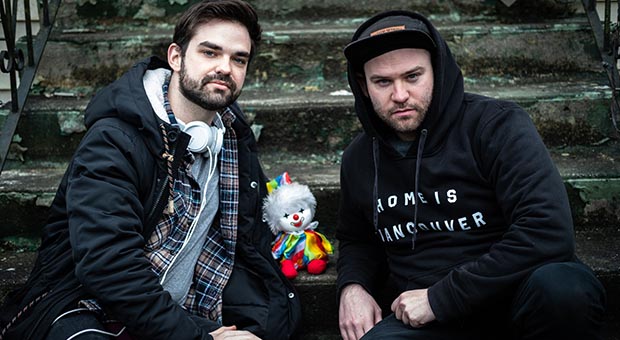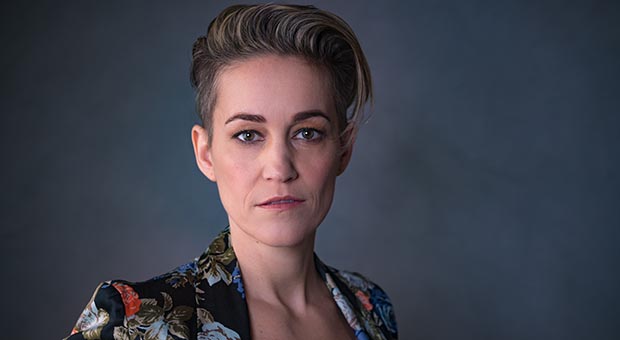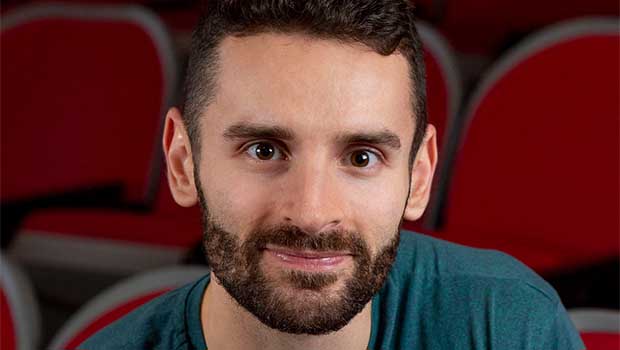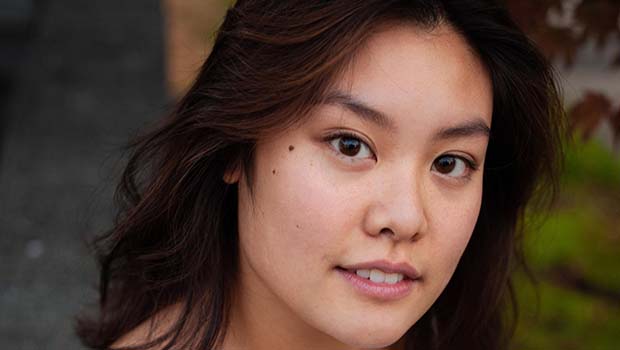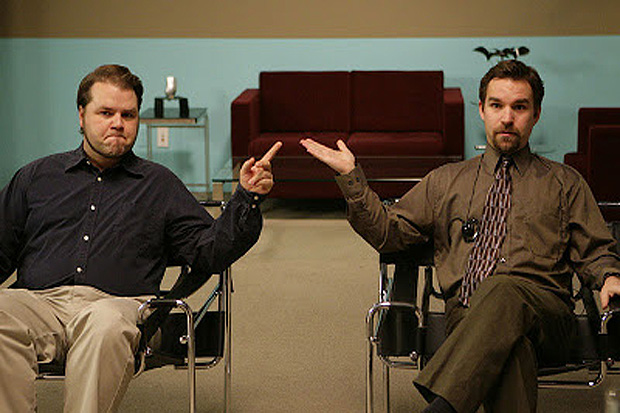
15 Jun The Biz Interview: Cameron Labine – Director of “Control Alt Delete”
All of us here at Biz Books are in the business of helping others to be creative, in addition to working at being so ourselves. Based on that, it’s always a cause for celebration when one of the “Biz Books Alumni” has a new project to share.
Case in point: Cameron Labine, the director of Control Alt Delete.
In case you missed it in theatres or on the festival circuit at VIFF and TIFF, this former Bizzer’s cinematic labour of computer love arrives on DVD this week.
We figured that this was a great time to catch up with Cameron and ask him about how the film came to be and hear his own insights into the directorial process.
For those people who are new to the world of Control Alt Delete, what would you like them to know about the film going in?
I’d like them to know that they are going to see some things they probably haven’t seen before. Like computer sex. Or compulation, as we call it. And that it’s okay to become aroused.
Can you tell us about the casting process for the film and how that came to be?
I wrote the lead role of Lewis with my brother, Tyler Labine, in mind. I also wrote roles for friends Geoff Gustafson, Keith Dallas and Bro Gilbert. The rest of the cast came in to read for our casting director Sue Brouse and myself. Alisen Down was a wonderful surprise as the uptight office manager, Angela. And Sonja Bennett made the role of Jane something special. I got lucky.
As a director, what are the most effective ways to communicate your vistion to actors on the set?
I was an actor for years so I share a vocabulary with them. Although I’m not very technical. I just like to talk it out, like we’re having a beer. Unless they’re making some left-field choice I generally work with what they bring, rather than micro-managing the performances. Once you cast them, you should pretty much know what you’re going to get.
What was the most difficult scene for you to film?
The first scene of the film! We did a slow dolly through Lewis’s apartment and then settled on he and his girlfriend fumbling their way through a 69 position. Laura Bertram and Ty were great sports but it was a tense environment, exasperated by me and the DP trying to do something technically challenging with the camera. Bad idea. But it turned out okay in the end.
After completing the film, you screened it at several film festivals, including Vancouver and Toronto, before securing Canadian distribution with E1 Entertainment. What can you tell us about your journey from the festival circuit to theatrical distribution?
Well, getting in to TIFF creates a nice buzz and we suddenly had the distributors courting us. So we showed it to our first choice, E1, and they
bought the world wide rights before we even screened at the festival. That was a thrill, and a relief. I had a lot of fun travelling around with the
film but the other highlight was receiving the Film Guide Inspiration Award at VIFF, in front of the home town crowd.
What do you think are the biggest challenges facing Canadian filmmakers right now?
I would say our problems all start with the dismal box-office. Feature film is a tough business in general right now, but when Canadian films are only pulling in 1% of domestic box-office, you know it’s unsustainable. So it’s becoming increasingly hard to put together financing. Even with all the “soft money” (telefilm, tax-credits) available here. Frankly, it’s very discouraging. I’ve been looking to TV as a relatively vibrant alternative.
As a filmmaker, how would you describe your stylistic footprint? How do you try to be different from what’s out there and who’s work are you influenced by?
I’m interested in exploring the darker parts of the human experience in a fun and irreverent way. Control Alt Delete is about some pretty serious
stuff — addiction, pornography, fetishism, anxiety — but it’s always encouraging you too laugh at it. I mean, come on, you think you’re the first
person to want to screw a computer? Well, maybe that’s a bad example. But I feel that if we can laugh at ourselves, our problems become manageable.
I’m influenced by everybody. And I usually think of specific influential films more that artists. But I would say I draw especially on Woody Allen, Hal Hartley, Billy Wilder and The Coen Brothers.
You wrote the screenplay for the film, as well. Where do you get your inspiration from and what comes to you first — the words or images of the story?
In the case of CAD it was the image…of the dude…doing it. But then came the words, and I would say that I generally think in words more than images. For better or worse.
If you could recommend one book about screenwriting or directing, which would it be and why?
Right now, it would be Inside Story by Dara Marks. It’s a brilliant examination of how story, character and theme work together in a screenplay. Overall though, it would have to be Sculpting In Time by Andrei Tarkovsky, the greatest film director of all time. Reading that book is like going to church.
What upcoming projects are you developing that you can share with us?
As I said, television is looking pretty good right now, so I have several projects in development with different production companies and
broadcasters. It’s cool, it pays, and I don’t know about you, but I love TV right now. I just started Nurse Jackie and Breaking Bad and it hurts my brain to choose which episode to watch next. I cant even keep up with all the cool stuff on TV. It’s become a really exciting form over the last
while, ever since The Sopranos and Six Feet Under busted down the door.


